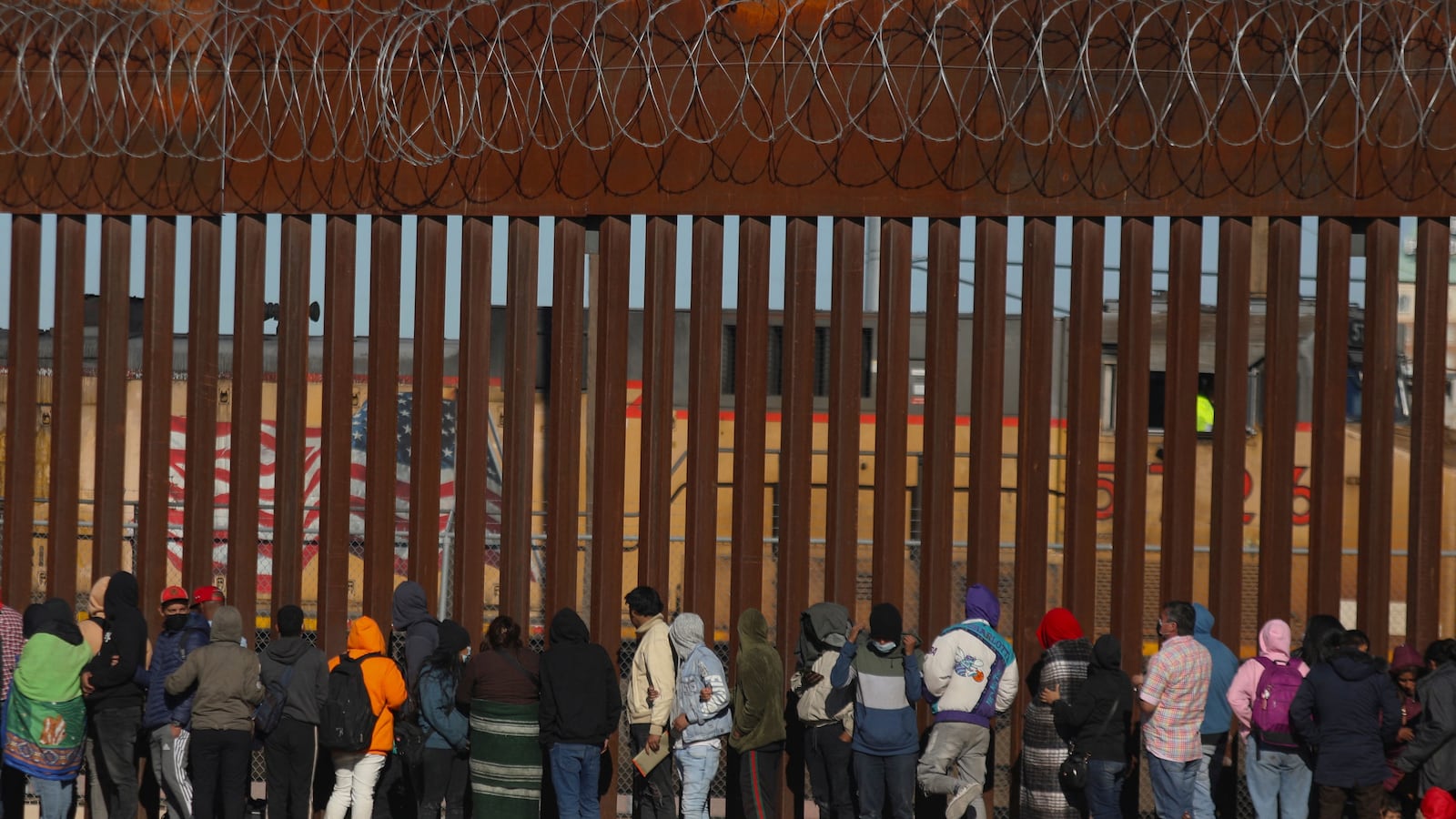A lawyer defending a highly controversial Texas immigration law admitted to a federal appeals court on Wednesday that legislators might have gone “too far” when they crafted the bill that allows state and local authorities to arrest and deport undocumented migrants.
The admission was made at the second hearing before a 5th U.S. Circuit Court of Appeals three-judge panel that will determine whether Senate Bill 4 (S.B. 4) can go into effect. Since Texas Gov. Greg Abbott signed the law in December, it has faced legal challenges about whether or not it infringes on the federal government’s role in enforcing immigration actions.
If enforced, the law would allow local officers to arrest anyone they believe had entered Texas illegally and empower state judges to deport those people back to Mexico. Those arrested for crossing illegally would face a Class B misdemeanor, which carries a maximum sentence of six months in jail. Mexico has previously said that it would not accept migrants sent by Texas, further calling into question how this law would be enforced.
Texas Solicitor General Aaron Nielson argued Wednesday that local authorities would work with its federal partners if S.B. 4 is implemented, seeking to downplay the sweeping powers the law could potentially give to local authorities.
He also acknowledged that lawmakers who crafted the legislation tried to go “up to the line” on previous Supreme Court precedent on state immigration powers and no further. (A 2012 landmark Supreme Court decision shot down an Arizona immigration law that tried to give state and local authorities power over immigration enforcement.)
“Now, to be fair, maybe Texas went too far,” Nielson said, according to CNN.
The lawyer later explained that if the federal appeals court finds parts of S.B. 4 invalid, it should “sever” those parts instead of blocking the entire law.
He also fielded questions about how the law would be implemented. Under the Texas Attorney General’s interpretation of the law, he said, state authorities would turn over migrants to official border entry ports—and leave decisions on next steps to federal authorities.
Chief Judge Priscilla Richman, who was nominated by George W. Bush and was a swing vote in the panel’s previous S.B.4 ruling, seemed skeptical of the lawyer’s latest explanation of the law’s scope. In the last oral arguments, Richman grilled Nielson about how the law would be interpreted by local officials—a question he could not immediately answer.
“What has the statute accomplished?” Richman asked.
The grilling is not surprising, given the panel’s previous ruling to pause S.B.4 while the lower courts debate whether it violates the Constitution. Last month, the panel also paused the law after it was briefly allowed to take effect by the U.S. Supreme Court.
Judge Irma Carrillo Ramirez, who was nominated by President Joe Biden, voted alongside Richman to pause S.B.4 while Trump nominee Judge Andrew S. Oldham has consistently voted for the law to go into effect amid its constitutionality debate.
“For nearly 150 years, the Supreme Court has held that the power to control immigration—the entry, admission, and removal of noncitizens—is exclusively a federal power,” Richman wrote in the March 27 opinion, adding that the S.B.4 currently “bestows powers upon itself that are likely reserved to the United States.”
Oldham, however, wrote in his dissent that it is unclear if S.B. 4 is unconstitutional. “Never in the history of the nation has the United States achieved what they’ve achieved in this case, which is a facial invalidation of a statute that never went into effect,” Oldham said on Wednesday. “It’s an extraordinary achievement that the United States has won.”
Similar to their arguments before the panel last month, Biden administration lawyer Daniel Tenny argued that immigration enforcement is up to the federal government—and urged the court to stay the course with their previous rulings on the S.B.4.
“Nothing that has happened this morning provides any basis for deviating from the analysis set out in this Court’s stay opinion,” Tenny said.
Nielson, however, insisted that S.B.4 is a necessary response to ensure that immigration laws are actually being enforced. “Of course, we know that presidents come and go, and different administrations might very well enforce federal law differently,” he said.
Vanessa Ruiz, a Texas immigration lawyer, told The Daily Beast that while Wednesday’s hearing has provided some more context on how Texas plans to implement S.B.4—the law will likely continue to be argued in the courts for some time.
“This is going to go all the way to the Supreme Court again,” she said. “Nobody can come to a conclusion. No matter what, the other side is going to appeal.”






